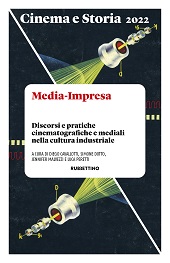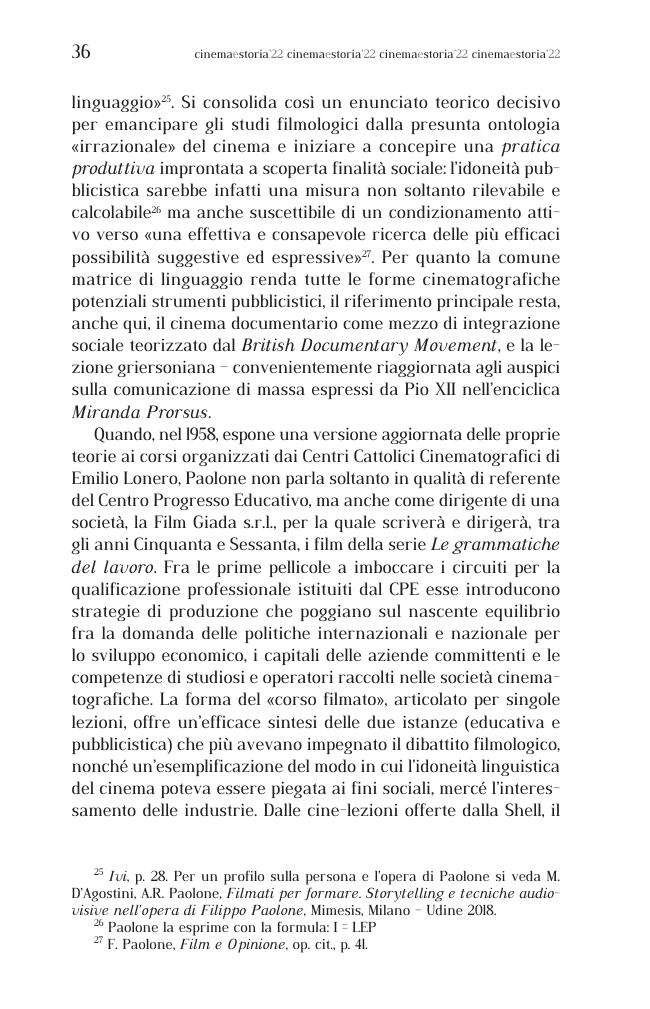Istruzioni per l'uso : teorie d'utilità nel dibattito sul film industriale italiano (1949-'72)
P. 27-44
Mutuate dall'eredità foucaultiana e dagli studi culturali sulla governamentalità, le nozioni di “cultura utile” e “cinema utile” hanno trainato un'ormai consistente rivalutazione del patrimonio filmico industriale. L'articolo si propone di storicizzare il concetto stesso di utilità attraverso uno sguardo ravvicinato alle strategie retoriche e alle conformazioni discorsive che, dal secondo dopoguerra in avanti, hanno promosso e accompagnato l'introduzione del medium cinematografico nei circuiti aziendali e nelle le organizzazioni lavorative italiane.
Il primo paragrafo ricostruisce l'idea di utilità del cinema quale strumento di formazione e informazione collettiva così come è andata consolidandosi nelle scienze sociali e nel dibattito filmologico tra il 1949 e il 1959; nel secondo paragrafo si ripercorre l'istituzionalizzazione della “cinematografia specializzata”, e in particolare di quella industriale, attraverso la voce di studiosi e operatori che ne hanno commentato l'ascesa e il declino fino ai primi anni Settanta, ravvisando ulteriori accezioni di “utilità cinematografica” – intesa ora come funzionalità del mezzo all'organizzazione del lavoro, ora come possibile vantaggio reputazionale per le immagine pubblica delle aziende committenti. [Testo dell'editore]
Borrowed from the legacy of Focault's theories and from the field of govermental studies, the notions of “useful culture” and “useful cinema” have been serving as guiding concepts of a significant reassesment of the industrial film heritage. The article aims to historicize the very concept of “utility” by taking a closer look to the rhetorical strategies and discursive conformations that, starting from the second post-war era, promoted the introduction of the cinematographic medium in corporate circuits and work organizations in Italy. The first paragraph focuses on the idea of the usefulness of cinema as a tool for mass and information as it has been established within the social sciences and in the filmological debate between 1949 and 1959; the second paragraph traces the institutionalization of the so-called “specialized cinema”, and in particular of the industrial one, through the comments of the operators who have observed its rise and decline up to the early 1970s.
Further meanings of “cinematic utility” are located here, either as the medium's functionality in work organisation and management, or as an advantage for the reputation and the public image of sponsoring companies. [Publisher's text]
-
Articoli dello stesso fascicolo (disponibili singolarmente)
-
Informazioni
Codice DOI: 10.1400/290466
ISSN: 2283-9852



